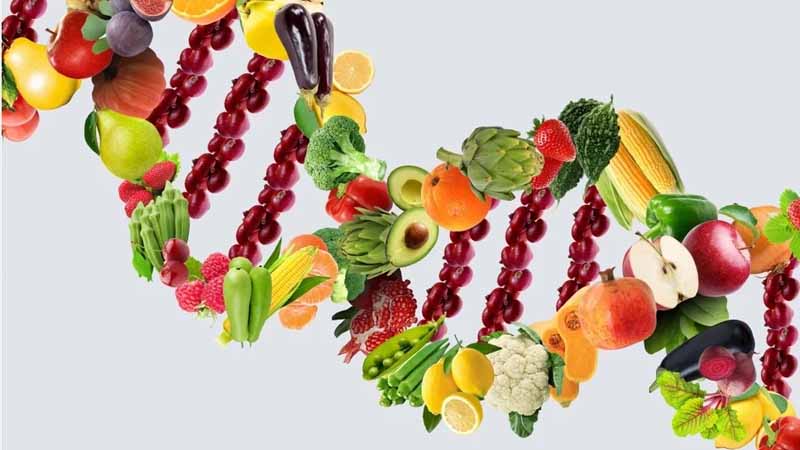Should Diet Be Based on Your Genetics?
- 30 months ago
Genes are often underrated. However, from acting as your body’s blueprint and controlling your sleep cycles to your height and hair pattern, every single activity is regulated by your genes. But does the food you consume has something to do with genes? Or should you consume food based on your genetics?
Well, if you have either or both questions on your mind, this blog is for you. Here we’ll talk about Nutrigenomics, that’ll help you understand the relation between food and your genes.
On top of that, you’ll learn the science behind personalized nutrigenomic testing and whether you should go for nutrigenomic testing. So, read in full.
What is Nutrigenomics, and How does it Actually Work?
Nutrigenomics, also known as nutritional genomics, is the study of the interaction between diet, nutrition choices, and genes. However, several people refer to it as nutrigenetics, which means how your body responds to nutrients based on your genetic makeup.
While there’s ample information out there about healthy diet charts and nutrition choices, the concept of Nutrigenomics is relatively new.
You might be wondering if the fact how genes express themselves influences your diet patterns. Well, it is crucial to understand that gene expression reacts differently to a different kinds of food. For instance, you may be capable of digesting eggs due to your genetic sequence, but your friend might not.
Well, the process of Nutrigenomics basically works in four simple steps:
- The first step begins with the collection of a sample from your saliva.
- Sample collection follows laboratory testing and analysis.
- The third step comprises the delivery of your detailed report.
- Lastly, an expert arranges a counseling session to give you the necessary diet tips.
Although researchers have conducted extensive research in the area of Nutrigenomics, the connection between diet, genetics, and health along with the concept of Nutrigenomics is still merging. Therefore, blindly relying on Nutrigenomics won’t be a good idea.
[How to avoid getting lifestyle disorders your genes may be prone to?]
Personalized Genetic Testing and the Science Behind it
Genetic testing is commonly done to get hereditary information. Its role in nutrition and diet was unknown for years. Since people have recently become more concerned about health, fitness, and food, Nutrigenomics and personalized testing grabbed quite an attention.
Personalized testing helps reveal the genetic information necessary for better nutrition counseling. It becomes easy for the nutritionists to give you the best advice and diet charts to follow. A study of 2020 published in the British Medical Journal stated that nutrigenomics guidance, especially related to intake of saturated fat, can help you avoid long-term complications.
Further, genetic testing provides you with specific information about your nucleotide sequences which helps you deal with any kind of diet-related issues. This way, you can simply get assured of the diet pattern you follow.
How can Nutrigenomics Benefit you?
While there may be research going on in the nutrigenomics field about how genes, diet, and health are linked, one thing is clear, i.e., genes, hereditary, and diet are somehow linked.
So, based on how your genetic makeup looks, an expert can help you suggest a diet that complements your health in every way. And a genetic diet could help you:
- Regulate the process of digestion, absorption, and assimilation
- Prevent you from the risk of heart attacks, diabetes, obesity, etc.
- Improve your quality of living
- Give you a true understanding of your physiological performance
- Maintain the normal basal metabolic rate of your body
- Long-term health benefits
Besides, genetic testing boosts your confidence while following diverse cuisines. And so far, the research has concluded that genetic testing does not leave you with any side effects. Yes, it is also one of the safest kinds of testing for your body.
Is Nutrigenomic Testing the Right Decision for You?
Sometimes, even after considering so many medications and cures, your body fails to get rid of unwanted diseases. For instance, if you feel nauseous after the intake of milk, you might be missing the clue of being lactose intolerant unless you get yourself genetically tested.
So, in case you are having any kind of food allergy or cancer-like serious problems, try considering genetic testing at the earliest. If you keep delaying, the problem could aggravate, which can be life-threatening in some cases.
Please note: As stated earlier, the concept of Nutrigenomics has been introduced recently, and much research is still needed. Therefore, you must consult with a medical expert for professional advice before opting for nutrigenomic testing.
And if you have no privacy issues, unlike some people regarding your genetic information, know that it’s a really expensive process. So, be ready to burn a huge hole in your pocket if you want to get yourself tested.
What Else Apart from Genes Impacts your Diet?
Even though genetics and nutrition are closely related, the environment has a more profound impact on your physical and mental state. Anxiety, poor relationships, and work stress could also increase your risk of diet-related diseases.
It is quite clear that genes express themselves to regulate various metabolic activities. Yet the role of the environment in maintaining your body’s physical and mental balance is worth considering.
Wrapping Up
Genes are responsible for controlling all the major activities of your body. And they certainly determine the fate of the food you consume.
Not only does it help you to know what you should have in your daily diet, but it also protects you from unwanted risks that random food picking poses. So, for a better lifestyle, it’s important to understand the concept of Nutrigenomics.
Indeed, the expectations from this new tool of nutritional genomics are quite high. However, the progress seems to be comparatively slow. Anyhow, diverse aspects of Nutrigenomics will surely lead to deeper insights into the idea in the coming years.










